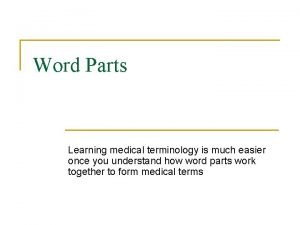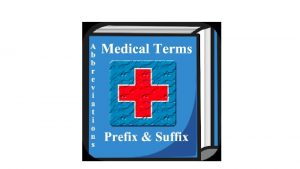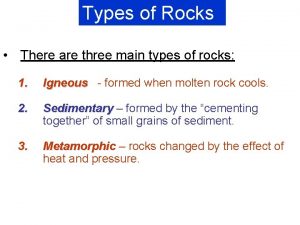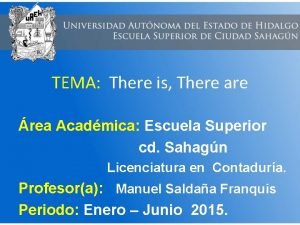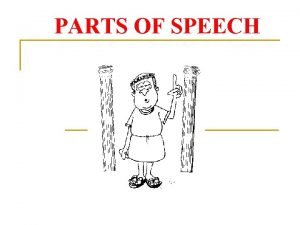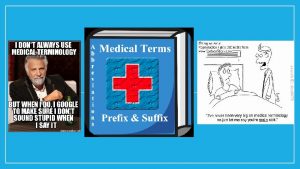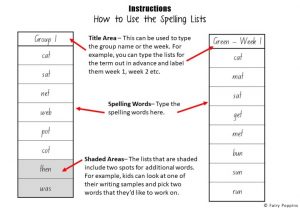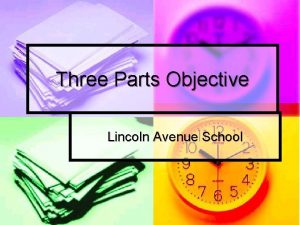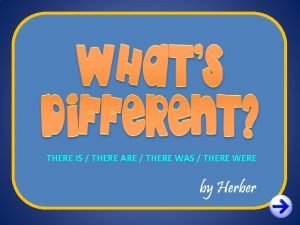Word Parts WORD PARTS There are three types










- Slides: 10

Word Parts

WORD PARTS There are three types of word parts: 1 Prefixes 2 Suffixes 3 Roots

WORD PARTS • Learning word parts will help your pronunciation, spelling and vocabulary. • Also, because word parts have meanings, knowing them can help you figure out the meaning of a word you don’t know.

PREFIXES A prefix is a word part that is added to the beginning of a word. It can change the word’s meaning. • The prefix un means “not. ” • When un is added to known, a word with the opposite meaning is formed: unknown.

PREFIXES Ten common prefixes and their meanings: Prefix Examples ex—out, from in (im)—within, into; not pre—before post—after sub—below, under super—over, above; beyond mis—badly; wrong mono—one un—not re—again, back exit inside, improbable prepare postgraduate submarine superior mislead, misunderstand monotony unwanted rewrite, respond

SUFFIXES A suffix is a word part that is added to the end of a word. It can change the word’s part of speech. • The suffix less means “without. ” • When less is added to life, we get a word with the opposite meaning: lifeless.

SUFFIXES Ten common suffixes and their meanings: Suffix able (ible)—able to be ion (tion)—state of being; act of er (or)—a person who does something ist—a person skilled at something ful—full of less—without ism—a practice; belief; set of principles ment—state of being ish—similar to ly—in a certain way; at a certain time Examples enjoyable, edible limitation, celebration dancer, mayor artist, therapist joyful, suspenseful homeless terrorism, communism engagement foolish loudly, hourly

ROOTS A root is a word’s basic part and carries its fundamental meaning. • The word telegraph, for example, is made up of two roots: tele (which means “from a distance”) and graph (which means “write”).

ROOTS Ten common roots and their meanings: Root Examples bene (bon)—good, well port—carry bio—life ven (vent)—come man (manu)—hand ped (pod)—foot auto—self tele—far, over a distance spect—look aud (audi, audit)—hear benediction, bonus transport biology revenue, invent manage, manufacture pedestal, tripod automatic telescope inspect audience, auditorium

• Learning common word parts will help your pronunciation, spelling, and vocabulary. • There are three types of word parts: — Prefixes appear at the beginning of a word: unknown, misfortune — Suffixes appear at the end of a word: lifeless, sadly — Roots can appear anywhere in a word: predict, audible, revenue

